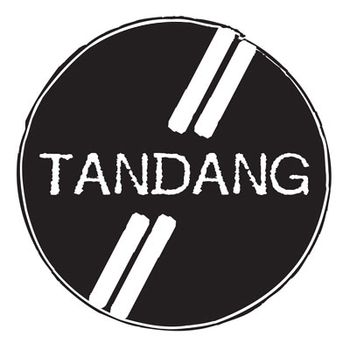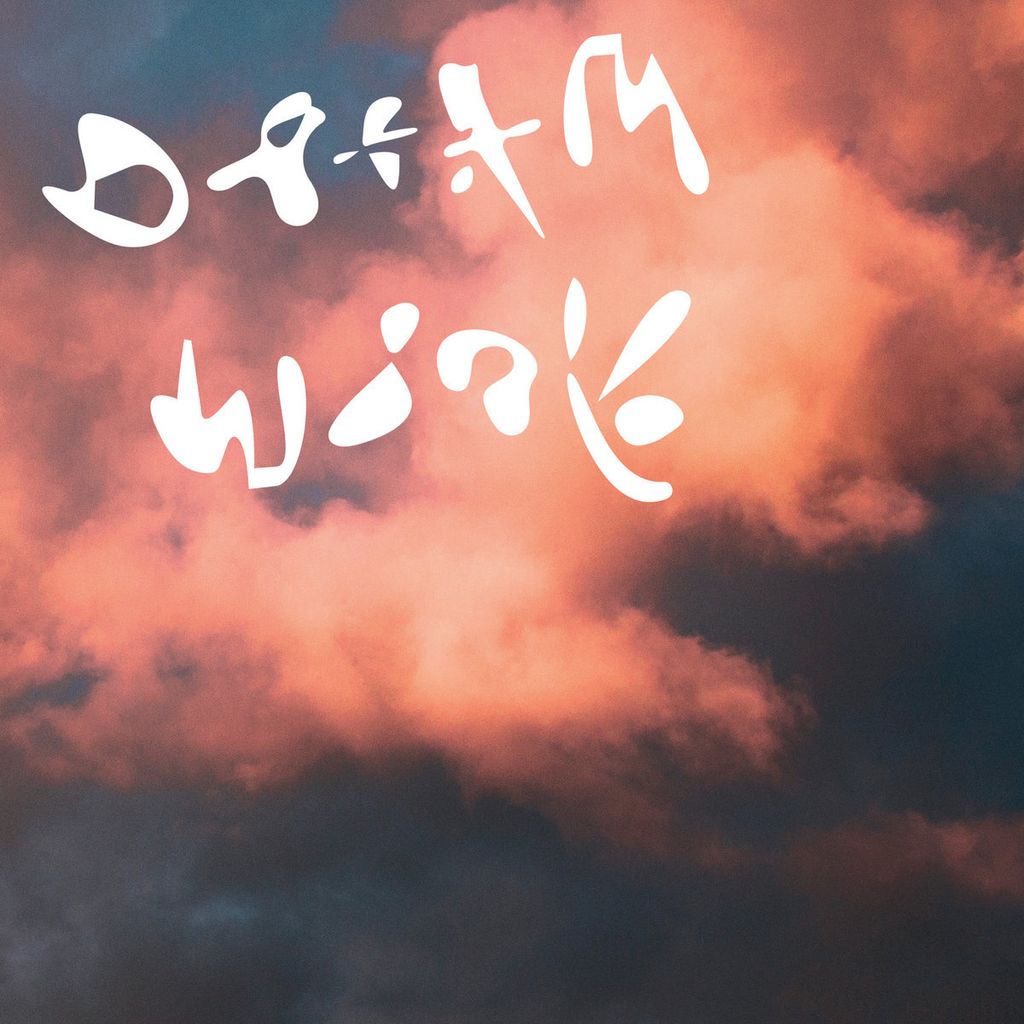• Pre-Order : Dinner "Dream Work" LP
RM 105.00
Captured Tracks Records
Pre-Order before 4th Nov 2024 [ETA : Nov 24]
Opaque White Vinyl
After a four-year hiatus exploring ambient and meditation music, Danish multi-instrumentalist Anders Rhedin has returned to his indie roots. Dream Work, his third album as Dinner, is a lush collection of synth and guitar-laden indie pop that expertly channels Ryuichi Sakamoto, early British indie, and the sound of water.
Like most worthwhile pursuits, the path to Dream Work hasn’t been straight. Rhedin spent his 20s playing in bands in his native Copenhagen (including the indie pop group Choir of Young Believers) before relocating to LA to pursue pop songwriting, an enterprise which he considers “an unmitigated disaster.” From this disaster, however, came the genesis of the Dinner project, which saw Rhedin self-releasing cassettes of his solo music while splitting his time between Berlin, LA and Copenhagen. His irreverent synth-based avant-pop was enough to attract attention, and in 2014 Rhedin signed to Captured Tracks, moved to LA full-time, and released a series of full length projects including Three EPs (2015), Psychic Lovers (2016), and New Work (2017). Over this period he also toured the world with the likes of Mac Demarco, Sean Nicholas Savage, Prince Rama, and King Gizzard.
In tandem with the progression of Dinner, Rhedin was also honing another skill - channeling his long standing personal interest in meditation and Jungian techniques into ambient production and guided meditation. After the release of New Work, he took a step back from the Dinner project in order to explore these avenues more seriously - returning to Copenhagen in the process. Over the last few years, he’s released a series of ambient releases under his own name geared towards meditation, sleep, and relaxation. He’s also led live guided sound baths and meditations at art museums, churches, and rooftops all over the world.
The time away proved fruitful - returning to the Dinner project with fresh eyes, Rhedin sought not to reproduce his previous style, but rather to integrate these two components of his body of work. “I think I’ve been working more like a sculptor less like a builder,” he notes. “I’ve just been chipping away at ideas until a song was left. Not so much trying to build something spectacular. I didn’t know what I wanted to do, but I knew I didn’t want to go back to how Dinner sounded before making the ambient albums. I knew that I kind of wanted to turn the old Dinner sound inside out. To go into that sonic universe but deconstruct it and rebuild it.” As a result, Dream Work sounds at once classic and entirely new; a deft balance of Rhedin’s trademark electro-pop with the meditative and organic elements of his ambient work.
This delicate balance is also a reflection of the site of its creation - Rhedin recorded the album in Copenhagen during the fall/winter, almost exclusively at night: “I rented a small studio in the off-hours. So I sat there at night a lot. I’d walk around the empty streets for inspiration, have a coffee, and get to work. There’s something beautiful about the world at night. Everything’s quiet.” This sense of ease translates in the music - from the melancholy acoustic guitar and downtempo synth melody of “Spirit Voices” to the ethereal refrain on “Connection”, Rhedin washes his pop songwriting in dark, dreamy textures. These textures lend cohesion to the far-reaching collection - Dinner effortlessly floats from Stereolab-like electric guitar (“Anima”) to twinkling synth-pop (“Midnight In My Head”) to fluid ambient (“Drøm”) in the span of just 34 minutes. Contributions from labelmates Molly Burch and Charlie Hilton as well as Lina Tullgren, Nicolai Koch help bolster this quality: much like Rhedin himself, Dream Work feels well-traveled even when it’s standing in place.
Though his influences may be vast in scope - ranging from Egyptian mythology to Japanese ambient to the experience of impending fatherhood (he recently welcomed his first child) - Rhedin is relatively uninterested in putting too much weight on intentions. “What I like about ambient is that it’s utilitarian. It serves a purpose....it’s not about ‘me’ as an auteur or about my life story. It’s about the listener’s experience. And we meet in that space somehow. We hang out in that space together.”
More than any one sonic or lyrical element, this ethos is perhaps the most distinct marker between Dream Work and the previous Dinner catalog. Like a still reflection pool, we can only glimpse the depths by looking through ourselves.
Like most worthwhile pursuits, the path to Dream Work hasn’t been straight. Rhedin spent his 20s playing in bands in his native Copenhagen (including the indie pop group Choir of Young Believers) before relocating to LA to pursue pop songwriting, an enterprise which he considers “an unmitigated disaster.” From this disaster, however, came the genesis of the Dinner project, which saw Rhedin self-releasing cassettes of his solo music while splitting his time between Berlin, LA and Copenhagen. His irreverent synth-based avant-pop was enough to attract attention, and in 2014 Rhedin signed to Captured Tracks, moved to LA full-time, and released a series of full length projects including Three EPs (2015), Psychic Lovers (2016), and New Work (2017). Over this period he also toured the world with the likes of Mac Demarco, Sean Nicholas Savage, Prince Rama, and King Gizzard.
In tandem with the progression of Dinner, Rhedin was also honing another skill - channeling his long standing personal interest in meditation and Jungian techniques into ambient production and guided meditation. After the release of New Work, he took a step back from the Dinner project in order to explore these avenues more seriously - returning to Copenhagen in the process. Over the last few years, he’s released a series of ambient releases under his own name geared towards meditation, sleep, and relaxation. He’s also led live guided sound baths and meditations at art museums, churches, and rooftops all over the world.
The time away proved fruitful - returning to the Dinner project with fresh eyes, Rhedin sought not to reproduce his previous style, but rather to integrate these two components of his body of work. “I think I’ve been working more like a sculptor less like a builder,” he notes. “I’ve just been chipping away at ideas until a song was left. Not so much trying to build something spectacular. I didn’t know what I wanted to do, but I knew I didn’t want to go back to how Dinner sounded before making the ambient albums. I knew that I kind of wanted to turn the old Dinner sound inside out. To go into that sonic universe but deconstruct it and rebuild it.” As a result, Dream Work sounds at once classic and entirely new; a deft balance of Rhedin’s trademark electro-pop with the meditative and organic elements of his ambient work.
This delicate balance is also a reflection of the site of its creation - Rhedin recorded the album in Copenhagen during the fall/winter, almost exclusively at night: “I rented a small studio in the off-hours. So I sat there at night a lot. I’d walk around the empty streets for inspiration, have a coffee, and get to work. There’s something beautiful about the world at night. Everything’s quiet.” This sense of ease translates in the music - from the melancholy acoustic guitar and downtempo synth melody of “Spirit Voices” to the ethereal refrain on “Connection”, Rhedin washes his pop songwriting in dark, dreamy textures. These textures lend cohesion to the far-reaching collection - Dinner effortlessly floats from Stereolab-like electric guitar (“Anima”) to twinkling synth-pop (“Midnight In My Head”) to fluid ambient (“Drøm”) in the span of just 34 minutes. Contributions from labelmates Molly Burch and Charlie Hilton as well as Lina Tullgren, Nicolai Koch help bolster this quality: much like Rhedin himself, Dream Work feels well-traveled even when it’s standing in place.
Though his influences may be vast in scope - ranging from Egyptian mythology to Japanese ambient to the experience of impending fatherhood (he recently welcomed his first child) - Rhedin is relatively uninterested in putting too much weight on intentions. “What I like about ambient is that it’s utilitarian. It serves a purpose....it’s not about ‘me’ as an auteur or about my life story. It’s about the listener’s experience. And we meet in that space somehow. We hang out in that space together.”
More than any one sonic or lyrical element, this ethos is perhaps the most distinct marker between Dream Work and the previous Dinner catalog. Like a still reflection pool, we can only glimpse the depths by looking through ourselves.


